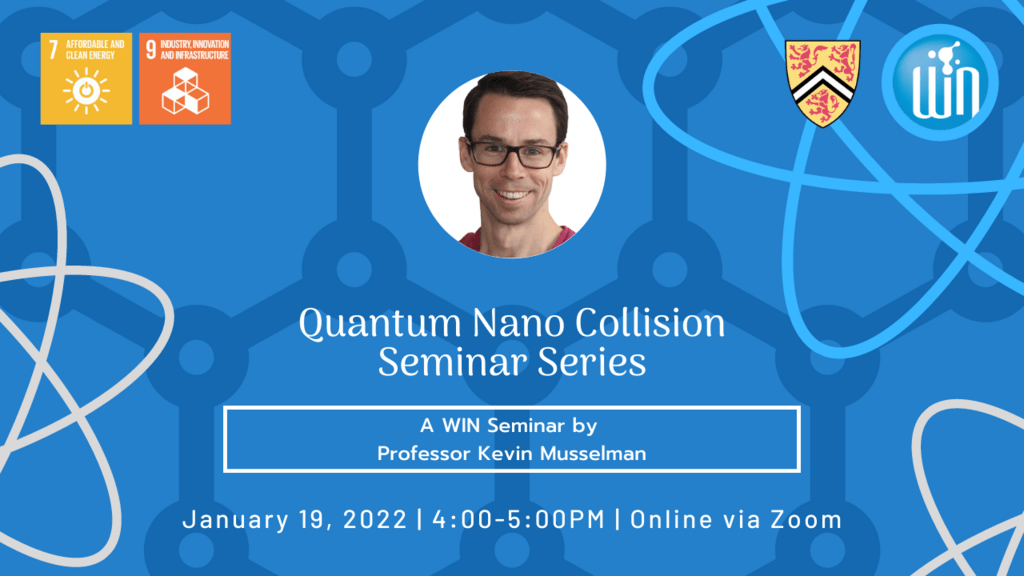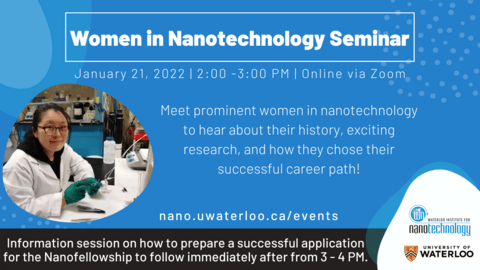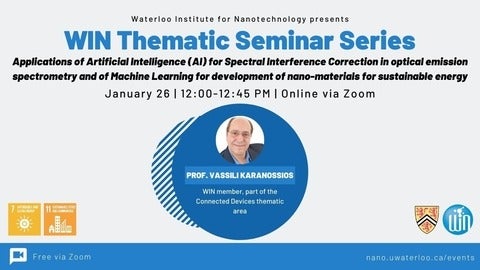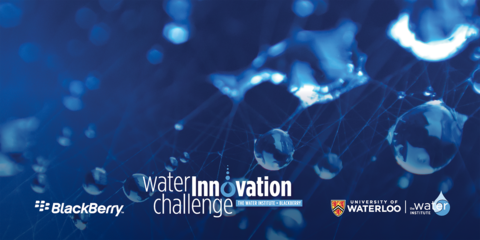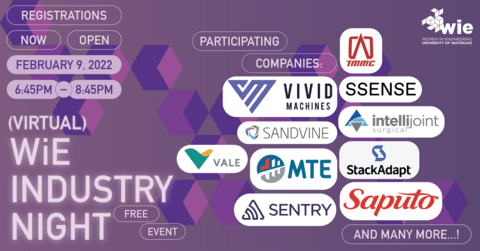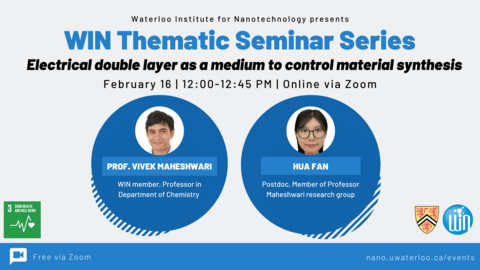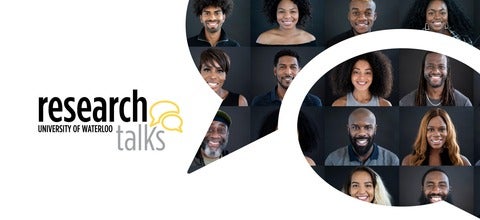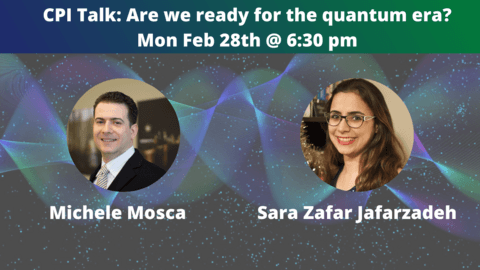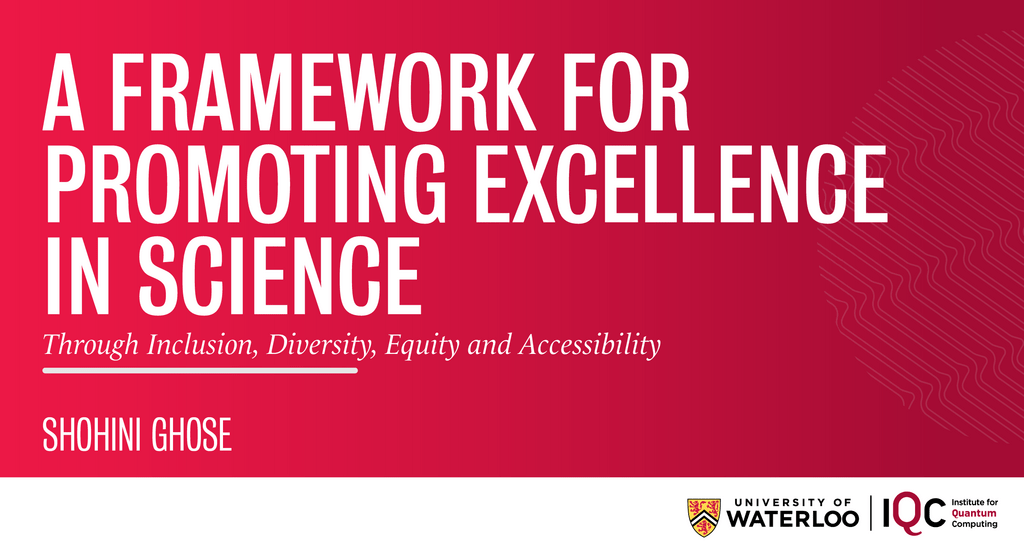Quantum Nano Collision Seminar Series: Professor Kevin Musselman
The Waterloo Institute for Nanotechnology (WIN) has launched a new seminar series, Quantum Nano Collision (QNC) Seminar Series, to deepen the engagement of the Waterloo researchers who work at the interface of quantum and nanotechnologies. This seminar series will also provide opportunities for senior graduate students, post-doctoral fellows, and research associates to present their innovative work along with the faculty members to bring together the excitement around these cutting-edge technologies that would shape our future.
The next talk for the QNC Seminar Series will be delivered by Professor Kevin Musselman.
